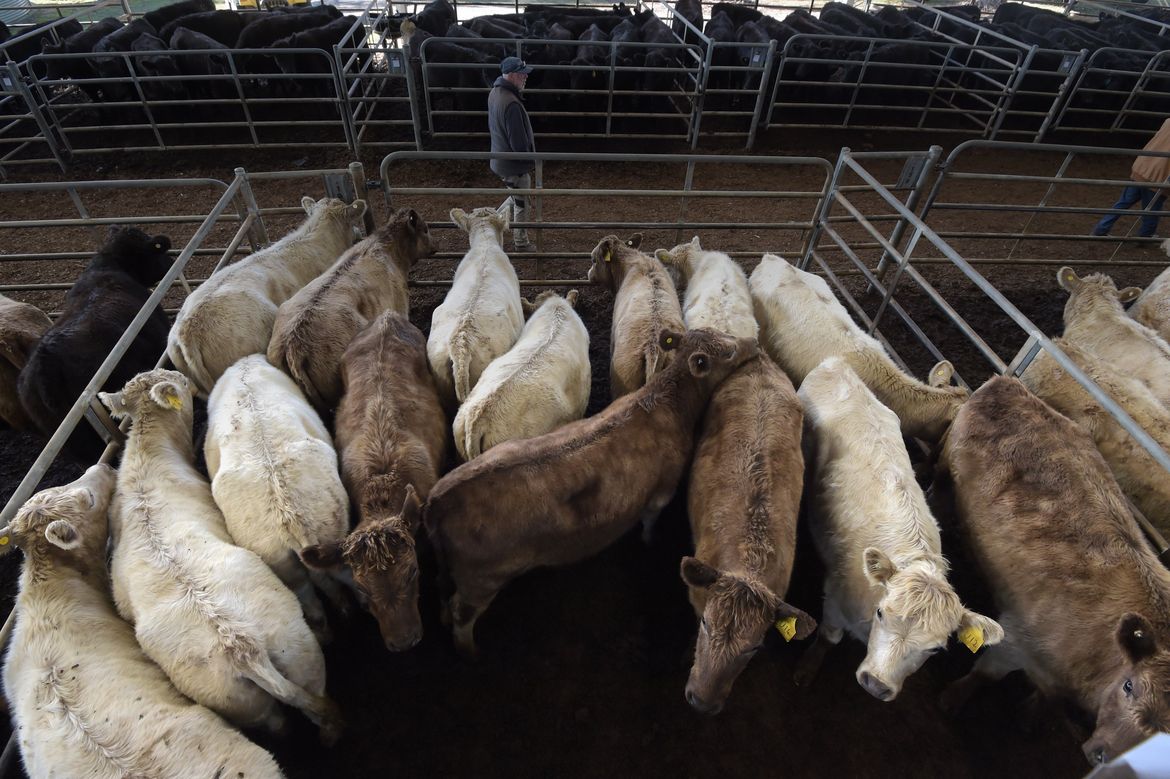
Big meat and dairy are ‘undermining’ climate action, report says
The world’s biggest meat and dairy companies are failing to address the environmental impact of their livestock and impeding the climate fight, according to a report from the Changing Markets Foundation.
Fifteen of 22 suppliers studied have some kind of net-zero target, but none meet UN standards, found the analysis released Thursday by the nonprofit that pressures companies to cut emissions. The industry spends more on advertising than climate solutions while also lobbying against regulations, the report said Thursday.
“The big meat and dairy industry is basically borrowing from the fossil fuel and tobacco playbook to derail climate action,” Nusa Urbancic, chief executive officer of the Changing Markets Foundation, said in an interview. “They are undermining the climate action around the world.”
Livestock, which release potent methane, are estimated to account for some 14.5% of global greenhouse gas emissions, in addition to straining land and water resources. Yet the agrifood industry has lagged other sectors in emissions reporting, targets and efforts.
The 22 companies analyzed emit more carbon-dioxide equivalent in a year than Japan, Urbancic said.
Several companies are now rolling out methane-suppressing feed additives, and working to convert manure into biogas as part of efforts to cut emissions. Companies including Cargill Inc. and Nestle SA are touting regenerative agriculture practices.
But Danone SA, which last year pledged to cut methane emissions from milk by almost a third, is the only company in the sector with a specific methane commitment. That puts it ahead of the pack when it comes to scientific integrity, the report said.
Overall, the sector’s net-zero targets largely fail on the integrity test, the report said. Company plans generally rely on offsets and “ill-defined” regenerative farming practices while exaggerating the mitigation potential of solutions such as methane-suppressing feed additives, it said.
The 333-page analysis, based on 18 months of work, looked at companies’ voluntary climate commitments, greenwashing claims, investments in advertising versus low-carbon solutions and their political lobbying. It also looked at their social media campaigns, and compared net-zero targets to the standard provided by the UN Expert group.
Questions about this Article?:

Copyright © 2021-2025. All rights reserved
This website stores cookies on your computer. These cookies are used to collect information about how you interact with our website and allow us to remember you. We use this information in order to improve and customize your browsing experience and for analytics and metrics about our visitors on this website. To find out more about the cookies we use, see ourPrivacy Policy.